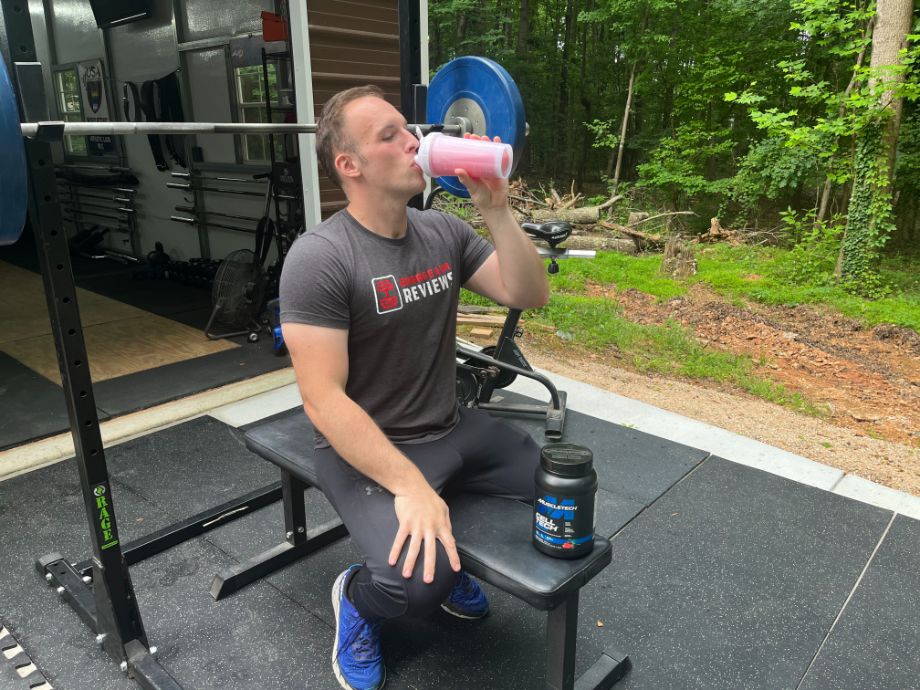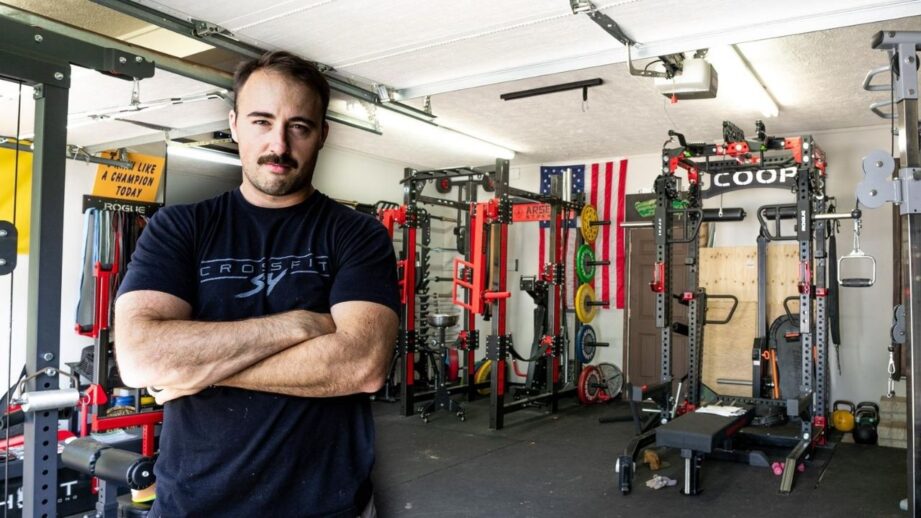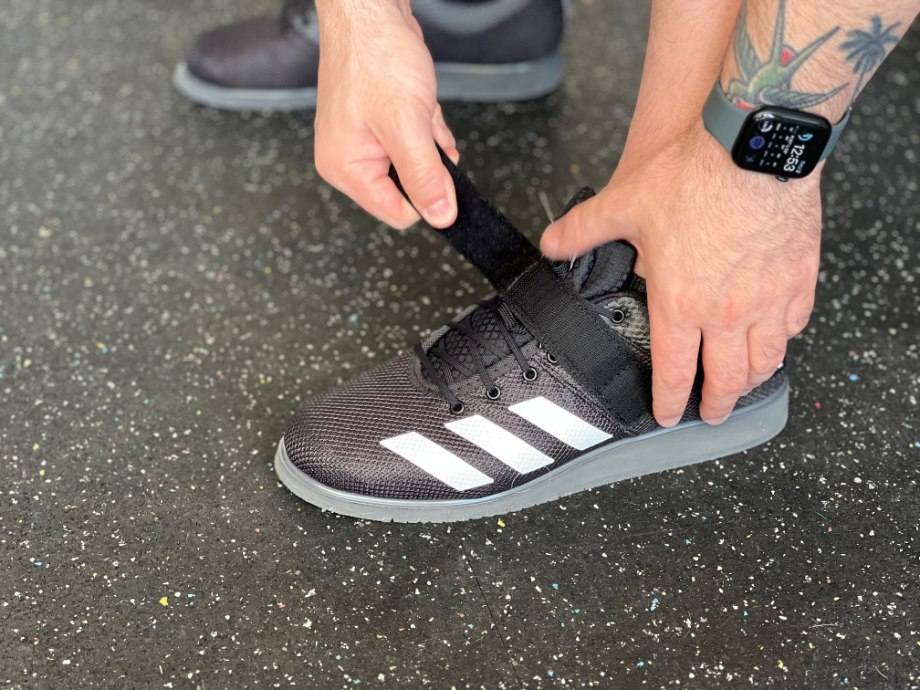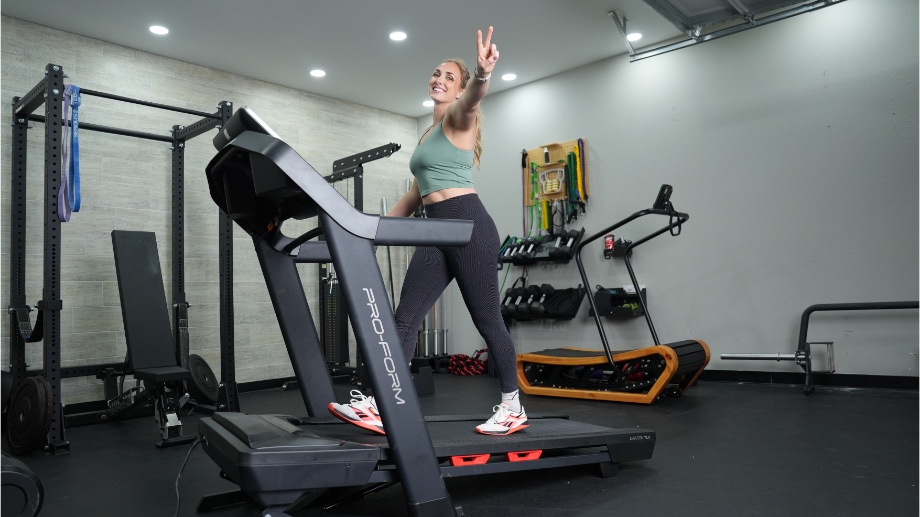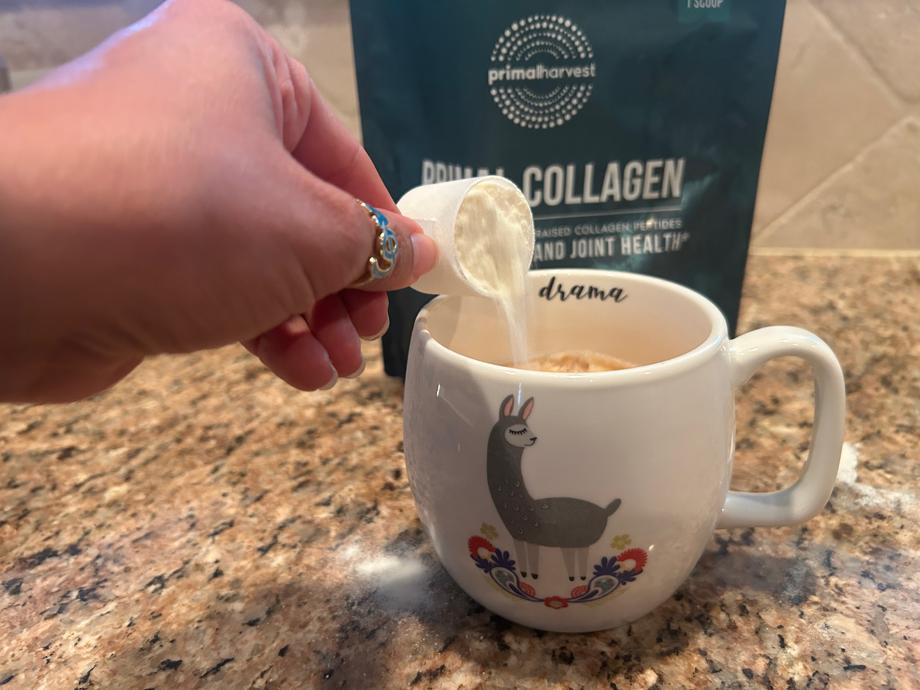Creatine is a supplement pantry staple for many committed fitness enthusiasts who engage in resistance training. It’s particularly popular in the bodybuilding world for its ability to aid in increasing muscle mass. Does creatine work? Absolutely—that’s been proven by literally hundreds of studies.
However, how long does it take for creatine to work? Do you have to go through a loading phase? And what happens when you stop taking creatine? A sports dietitian answers all of these common questions and more down below.
RELATED: Best Creatine Supplements
Medical disclaimer: This article is intended for educational and informational purposes only. It is not intended as a substitute for medical advice. For health advice, contact a licensed healthcare provider.
Quick Answer: How Long Does It Take for Creatine to Work?
Oh boy, I wish I could give a satisfying answer, but unfortunately that’s not the case. The benefits of creatine supplementation and their timeline varies wildly and depends on the following factors:
- How consistently you use creatine
- Your current fitness level
- Your current amount of muscle mass
- If you choose to do a creatine loading phase
- Your diet quality and type
- Your resistance training program
- Your genetics
As you can see, I have no straight answer for you. And if anyone promises you that you can gain X amount of pounds of muscle in Y amount of time on creatine, run far away. With all of the factors at play, there’s just no way to know for sure. However, you can expect to see body composition and athletic performance benefits anywhere from a week to a month after beginning a consistent creatine supplementation regimen.
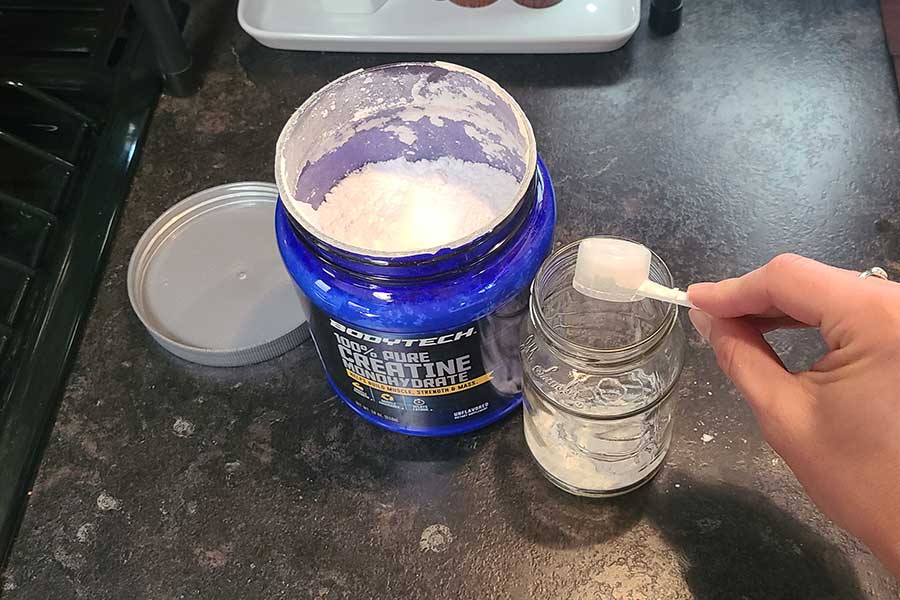
I will say, though, if you want to speed up the clock, the biggest factors you can control are pushing yourself during weight training, planning a sensible diet (preferably with the help of a nutritionist), and, above all, staying consistent!
What Is Creatine?
Creatine is a molecule synthesized in the body from amino acids. While it is very common for people to engage in creatine supplementation, this molecule can also be found naturally in animal foods like red meat and seafood.
RELATED: What Is Creatine?
However, you would need to eat around 4 to 5 pounds of meat per day to get the same amount of creatine contained in one serving of creatine monohydrate powder, which is not ideal. Most of the creatine stored in the muscles is a compound called phosphocreatine. This compound is useful in making1 adenosine triphosphate, or ATP, which is an important source of energy for the body, especially during high-intensity exercise.
Our bodies normally get the ingredients for ATP from food, which is why we eat to survive and keep up our energy and strength. However, when ATP begins to run out in our muscles, muscle contraction cannot occur as powerfully. So, when it comes to training harder and longer, having enough creatine stores within muscle cells can be a game changer.
Creatine Benefits
Aids in Building Skeletal Muscle
The desire to elicit weight gain and build muscle is the biggest selling point of creatine supplementation. Hundreds of studies have consistently supported the findings that creatine supports muscle growth.
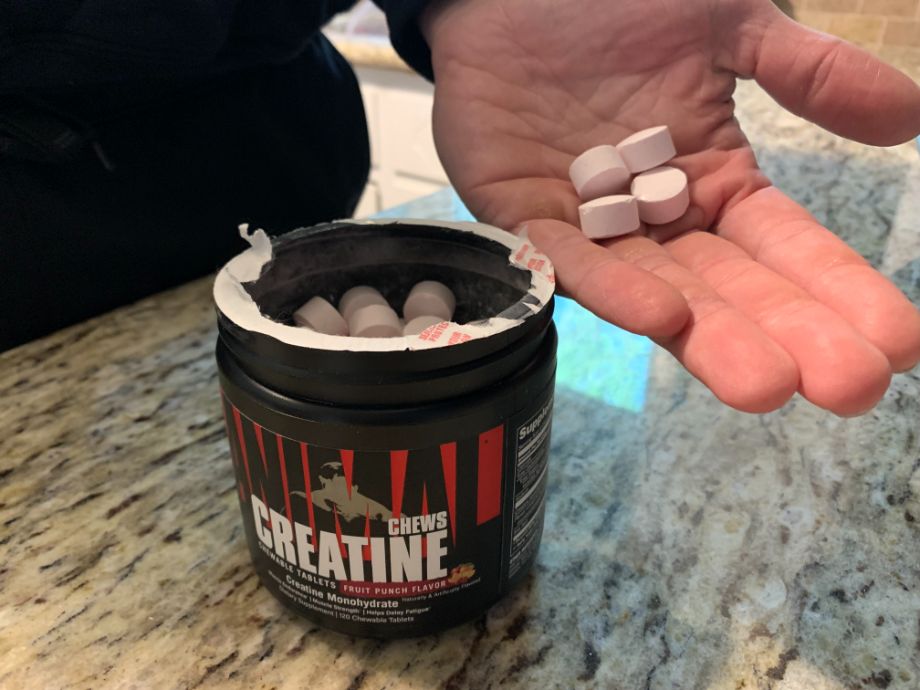
RELATED: Does Creatine Make You Gain Weight?
However, the amount of muscle growth someone will see varies widely depending on the individual’s genetics, current level of training, current level of fitness, diet, and exercise regimen. So, the amount of muscle you can expect to gain cannot be definitively quantified.
Helps with ATP Production
As mentioned, creatine plays an integral role in ATP synthesis1 which can help boost exercise performance2. For example, one recent study3 showed that athletes who engaged in creatine supplementation saw a 4-7% increase in peak power output and overall speed during sprinting, and similar results have been shown in other studies.
Maintain Optimal Recovery from High Intensity Exercise
Science has shown that, due to creatine’s ability to generate more energy for muscle cells, it can play a major role in better recovery and reduced muscle soreness1. It does this by helping you to maintain muscle strength during multiple bouts of exercise that you may have been too sore to perform otherwise. Additionally, creatine supplementation may reduce the inflammatory response, thus reducing muscular damage.
RELATED: Types of Creatine
May Prevent Muscle Breakdown
Speaking of a reduction in muscular damage, creatine’s anti-inflammatory properties can also be useful for athletes who are recovering from injury. Many a sports nutritionist has recommended creatine to athletes who are recovering from surgery or are otherwise immobile.
As an athlete heals from an injury, the body is in an inflammatory state, which increases the rate of muscle breakdown significantly. Luckily, creatine supplementation has been shown to reduce the loss of strength and muscle mass after a period of upper arm immobilization in otherwise healthy individuals who are active1.
Creatine Loading Phase vs Maintenance
Some people choose to maximize the creatine saturation in their muscle cells by participating in a creatine loading phase. This is a very popular strategy used with the intention of “loading” the muscle cells with abundant creatine levels from large doses of the supplement in order to maximize creatine stores.
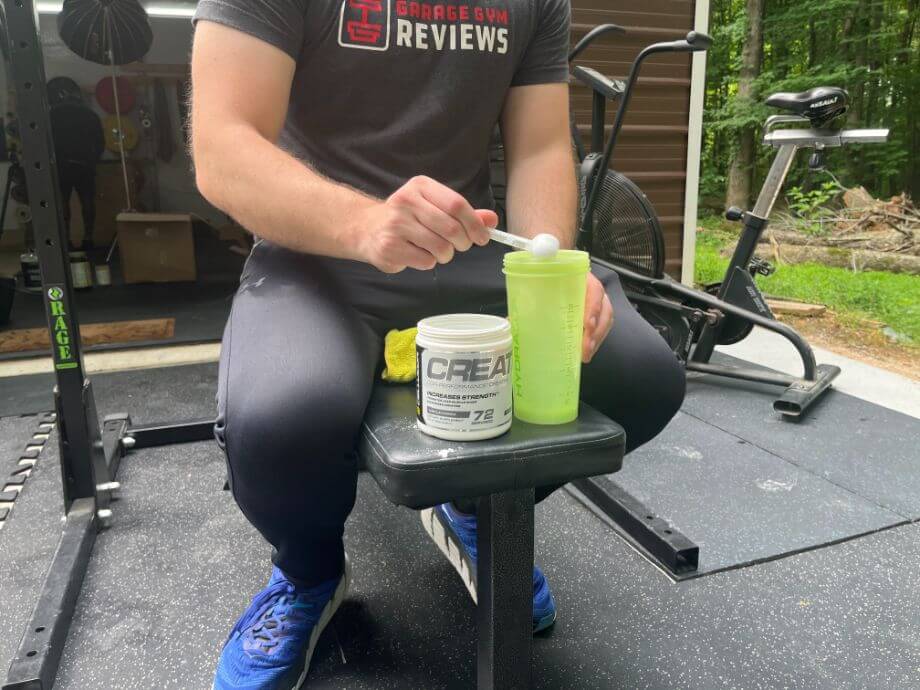
RELATED: How To Take Creatine
Although the optimal, efficacious dose is 5 grams of creatine (which is the typical amount you’ll see in a single serving of most creatine powders), those in the loading phase will take a much higher dose of 20 to 25 grams for five to seven days. Studies have shown4 that this short term method of creatine supplementation is indeed effective, especially for athletes who need to see the benefits of creatine in a very short period of time (30 days or less).
Creatine loading can also be effective if an athlete needs to gain a significant amount of weight in a short period of time because of the water retention property of creatine. There may be weight class sports or other competitions that require weight to qualify in a certain class. In this case, the method of loading creatine can be useful. As muscle creatine levels rise, water is pulled into the muscle cells and this can inflate body weight numbers, which is a legitimate strategy that nutritionists use with their athletes!
Now for the asterisks. If you decide to go through a creatine loading phase, to avoid side effects, do not consume more than 10 grams of creatine in one sitting. If your creatine intake is not staggered while loading, you can experience very unpleasant GI distress such as stomach cramping and diarrhea.
Possibly the biggest asterisk I want to put in italics is that studies have shown4 it really doesn’t make a huge difference to long term gain of muscle mass or athletic performance whether you go through a loading phase or a maintenance phase.
A maintenance phase is what one would call the “normal” way to take creatine, which is just the daily dose of 5 grams of creatine powder. After five to seven days of loading creatine, the loading phase is considered complete and you can drop back down to the maintenance dose of 5 grams of creatine. However, depending on your goals, this loading is by no means necessary.
What Happens When You Stop Taking Creatine?
Don’t worry, you don’t have to take creatine for the rest of your natural-born life to keep your gains. However, listen up folks who are into powerlifting! You should know that your exercise performance, including things like volume, number of reps, and power generation, may decrease when you stop taking creatine.
This is simply because creatine levels in the muscles can’t stay as high without creatine supplementation to supply the muscle cells with all of that extra ATP. However, if you stick to consistency with your diet and weightlifting, you shouldn’t lose the gains you earned while taking creatine.
If you do see a decrease in muscle mass after cycling off of creatine, keep in mind that some people experience water retention during creatine supplementation. When you stop taking creatine and this water is released, it may appear to be significant muscle loss. However, don’t worry, it’s likely not a loss of muscle mass.
How Long Does It Take For Creatine to Work? Final Thoughts
Although there are many factors that influence how quickly you can expect to see the benefits of creatine, the best thing you can do to maximize your results is to stay consistent in your supplementation, diet, and exercise regimen.
If you need to see short term benefits in weight gain and exercise performance, you can participate in a creatine loading phase. However, it’s not necessary and most people find the maintenance dose to be sufficient and much more agreeable.
In any case, creatine has been scientifically proven to be a safe, relatively low-cost, and effective way to aid in muscle gain, maintain optimal athletic performance, and even boost better recovery. If any of these benefits of creatine sound good to you, go ahead and give it a shot. You may just have to practice a little patience.
How Long Does It Take for Creatine to Work? Q&A
How do you know when creatine is working?
You may be able to tell that creatine is working if you notice an increase in body weight and/or an increase in muscle strength.
How fast does creatine help build muscle?
The rate at which creatine helps you build your target amount of muscle mass is different for everyone. However, you can expect to see the effects of creatine supplementation in as little as seven days.
What to expect when you start taking creatine?
When you start taking creatine for the first time, you can expect some bloating and maybe some gastrointestinal distress. However, these symptoms tend to pass as your system becomes accustomed to the supplement.
Does creatine help progress show faster?
Creatine has been shown to help progress efforts to build more skeletal muscle when taken in conjunction with a well-planned diet and weightlifting regimen.
These statements have not been evaluated by the Food and Drug Administration. This product is not intended to diagnose, treat, cure, or prevent any diseases.
References
- Wax B, Kerksick CM, Jagim AR, Mayo JJ, Lyons BC, Kreider RB. Creatine for Exercise and Sports Performance, with Recovery Considerations for Healthy Populations. Nutrients. 2021;13(6):1915. Published 2021 Jun 2. doi:10.3390/nu13061915
- Moraes Rd, Van Bavel D, Moraes BS, Tibiriçá E. Effects of dietary creatine supplementation on systemic microvascular density and reactivity in healthy young adults. Nutr J. 2014;13(1):115. Published 2014 Dec 15. doi:10.1186/1475-2891-13-115
- Bogdanis GC, Nevill ME, Aphamis G, et al. Effects of Oral Creatine Supplementation on Power Output during Repeated Treadmill Sprinting. Nutrients. 2022;14(6):1140. Published 2022 Mar 8. doi:10.3390/nu14061140
- Antonio J, Candow DG, Forbes SC, et al. Common questions and misconceptions about creatine supplementation: what does the scientific evidence really show?. J Int Soc Sports Nutr. 2021;18(1):13. Published 2021 Feb 8. doi:10.1186/s12970-021-00412-w


